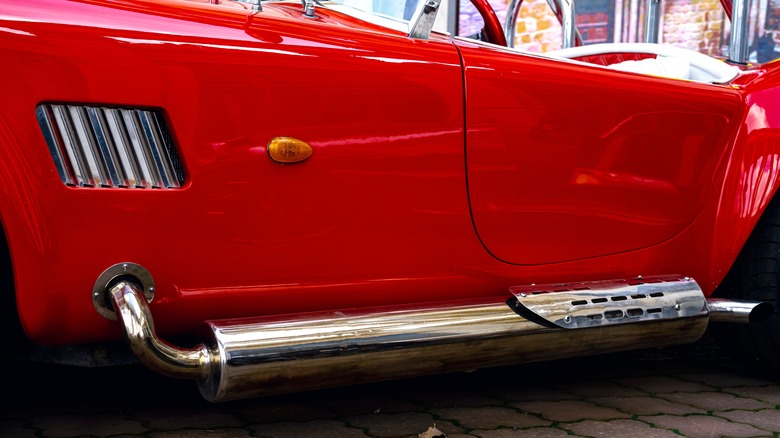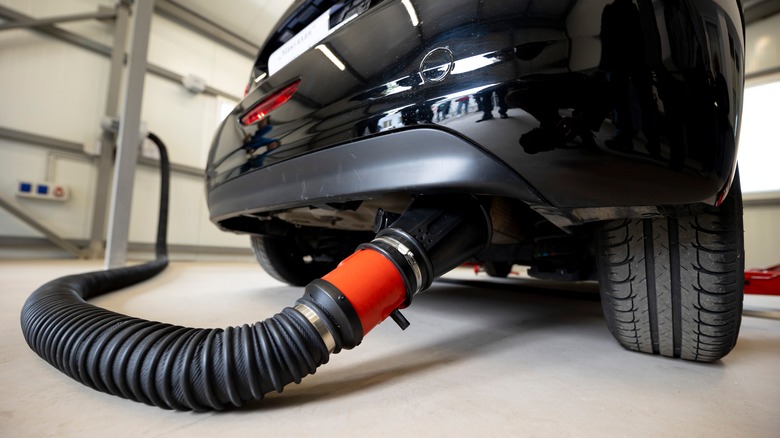Are Classic Cars Exempt From Emissions Testing In The US?
The Clean Air Act of 1970 established a federal law in the United States that requires automakers to manufacture vehicles that produce fewer emissions. Before that, California enacted the first standards for tailpipe emissions in 1966. Limiting the amount of pollutants coming from a vehicle not only helps protect the environment, but it also protects public health. Smog checks and emissions tests commonly aim to cutdown on chemicals such as carbon monoxide, hydrocarbons, nitrogen oxides, and sulfur dioxide in the air we breathe.
For road-going cars, there are few vehicles on the road that are exempt from an emissions test without question. Fully electric vehicles and hydrogen fuel cell electric vehicles — like Honda's 2025 CR-V e:FCEV — don't need to undergo emissions testing since they don't produce any emissions. However, there is a small "loophole" for some cars with internal combustion engines. Some vehicles can't be sold in the United States either because they don't meet America's safety standards, or they don't comply with the emissions standards.
So they're made for markets abroad. However, once a car is 25 years old, it can be classified as a classic and legally imported to America, regardless of it complying with Federal Motor Vehicle Safety Standards (FMVSS) or not. Classic, historic, antique, or parade vehicles doesn't have to undergo emissions tests of any kind. Depending on the car's classification, it will require specific documentation. Somewhere like Ohio doesn't allow owners to operate historical vehicles for general transportation.
What does the law say?
It's crucial that anyone investing in a classic car should check research the laws and regulations in the city, county, and state they're going to keep the car. Emissions laws, restrictions, or rules can vary from state to state. Over 21 states don't require emissions testing, but there might be some counties within those states that do require testing as well.
For example, Wisconsin has mandatory testing in Kenosha, Milwaukee, Ozaukee, Racine, Sheboygan, Washington, Waukesha counties out of its 72 total counties. Even California, having stricter standards than even the Environmental Protection Agency (EPA), does have a few exceptions. The Golden State's standards are so strict, in fact, that other states have the option of using the EPA's regulations or California's, of which 17 other states have done.
For example, ICE cars built on or before 1975 — like the surprisingly cheap 1975 Cadillac Eldorado — don't need a smog check. Interestingly enough, gas-powered cars less than eight model years old don't need to pass an emissions test either in California.

